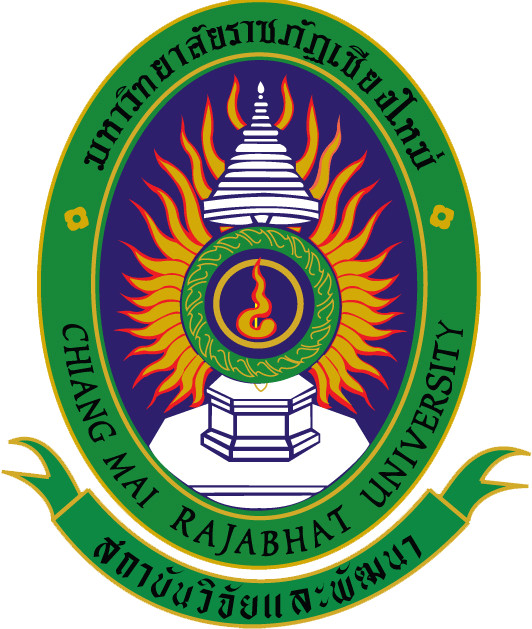
ระบบสารสนเทศงานวิจัย สถาบันวิจัยและพัฒนา มหาวิทยาลัยราชภัฏเชียงใหม่
Research Information System(RIS)
มัคคุเทศก์น้อยภาษาญี่ปุ่นเขตพื้นที่บ้านต้นเปา อำเภอสันกำแพง จังหวัดเชียงใหม่
อาจารย์กรุณา กลจักร์วงค์ษา
คณะมนุษยศาสตร์และสังคมศาสตร์
คำสำคัญ :
เลขทะเบียน :
020-55-HUSO-NRCT
บทคัดย่อ
การวิจัยเรื่อง มัคคุเทศก์น้อยภาษาญี่ปุ่นเขตพื้นที่บ้านต้นเปา อำเภอสันกำแพง จังหวัดเชียงใหม่ กลุ่มศึกษา : กลุ่มเยาวชนในเขตพื้นที่บ้านต้นเปา อำเภอสันกำแพง จังหวัดเชียงใหม่ มีวัตถุประสงค์เพื่อส่งเสริมให้กลุ่มตัวอย่างทำหน้าที่เป็นมัคคุเทศก์โดยผ่านภาษาญี่ปุ่น และเพื่อสร้างแบบเรียนการสนทนาภาษาญี่ปุ่นเบื้องต้นเกี่ยวกับการผลิตผลิตภัณฑ์จากกระดาษสา การแนะนำสถานที่ท่องเที่ยว และการค้าขาย โดยมีงานวิจัยเกี่ยวข้องกับทฤษฏีการท่องเที่ยวเป็นกรอบแนวคิดและเชื่อมโยงการท่องเที่ยวเข้ากับภาษาญี่ปุ่นโดยให้กลุ่มตัวอย่างในพื้นที่เรียนรู้ภาษาญี่ปุ่นเพื่อนำไปสื่อสารกับนักท่องเที่ยวชาวญี่ปุ่นเกี่ยวกับ แหล่งท่องเที่ยวที่สำคัญ ผลิตภัณฑ์ที่มีชื่อเสียง และกระตุ้นให้เกิดการซื้อขายผลิตภัณฑ์นั้น ๆ
รูปแบบการวิจัยเป็นการทดลอง 1 กลุ่ม ทดสอบก่อนและหลัง (One group pretest-posttest design) กลุ่มทดลองเป็นกลุ่มตัวอย่างในเขตพื้นที่บ้านต้นเปา อำเภอสันกำแพง จังหวัดเชียงใหม่ใช้แบบประเมินทักษะการสื่อสารภาษาญี่ปุ่นโดยอาสาสมัครชาวญี่ปุ่นเป็นผู้ประเมินหลังการทดลองจึงนำผลที่ได้ไปวิเคราะห์หาความแตกต่างของทักษะการสื่อสารเป็นรายบุคคล
กลุ่มเยาวชนตัวอย่างทดลองมัคคุเทศก์น้อยในเขตตำบลต้นเปา ได้เข้ารับการฝึกอบรมภาษาญี่ปุ่นและถูกประเมินความสามารถและทักษะทางภาษาในสถานการณ์จริง โดยมีทั้งหมด 7 ด้าน ได้แก่ การแนะนำตนเอง และหมู่บ้านของตนเอง การแนะนำวัดภายในหมู่บ้านของตนเอง การแนะนำสถานที่ท่องเที่ยวน้ำพุร้อน การแนะนำร้านค้าภายในชุมชน การแนะนำสินค้าในร้านค้า การซื้อขาย และบทสนทนาก่อนจากลา โดยมีอาสาสมัครชาวญี่ปุ่นเป็นผู้ประเมินทั้งก่อนและหลังเรียน
Abstract
The objectives of the study of Japanese Little Guide in Ton Pao Village, San Kampaeng, Chiang Mai are to promote the sample group to be interpreter through Japanese and to create the lesson book on basic Japanese conversation on the product made of Sa paper, tourism site recommendation and shopping by using involved study to be a concept frame and relate tourism to Japanese language and lead the sample group in the area to learn Japanese language to communicate with Japanese on tourist sites, well-known local products and provoke the shopping.
The study is experiment study with one group pretest-postest design. The test group is the sample group in the area of Ton Pao village, San Kampang, Chiang Mai, using Japanese language communication skill assessment form as a tool and Japanese volunteer as the evaluator. After the experiment, the result is analysed to find the difference of individual’s language skill.
The sampling youth as the experimental little guide in Ton Pao village has been trained Japanese language and assessed the language skill in real situation for 7 aspects: self-introduction and village’s introduction, introducing temples in their own village, tourist site recommendation, community’s shop recommendation, products in local shops recommendation, buying and selling and conversation before departing by having assessment of Japanese both pre-test and post-test.
ไฟล์งานวิจัย
1085 02 พ.ย. 2556
สำนักงานคณะกรรมการวิจัยแห่งชาติ (วช.)
196 Paholyotin Rd., Chatuchak, Bangkok 10900
0-2561-2445